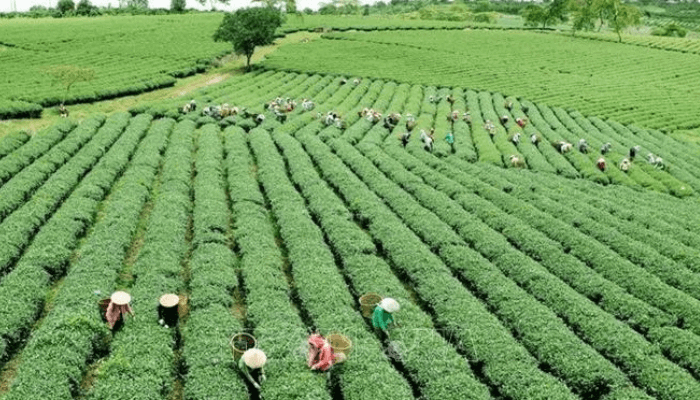How Nigeria can improve infrastructure, enhance farmers’ livelihoods
Several challenges trail Nigeria’s food sector. Farmers are faced with bad roads that make transportation from food-producing states difficult.
Experts say the agric sector requires urgent, coordinated investments to improve infrastructure, enhance farmers’ livelihoods, and build food system resilience.
A new report released by the World Food Programme (WFP), in partnership with the African Development Bank (AfDB) and the International Food Policy Research Institute (IFPRI), has listed out key recommendations that can improve efficiency as well as enhance the livelihoods of farmers.
The report titled ‘Investing in Innovative Food Systems Solutions in Challenging Contexts’ outlines a roadmap for transforming food production and distribution in Northern Nigeria, where insecurity, climate shocks, and poor infrastructure have eroded productivity over the years.
It emphasises how targeted policies and investments can help the region reclaim its role as the country’s agricultural powerhouse while supporting inclusive growth nationwide.
Identifying key areas for policy reforms and private-sector partnerships, the report urges the expansion of digital input platforms, rehabilitation of rural infrastructure, and the reduction of post-harvest losses that continue to undermine farmers’ revenue.
For a country that currently loses up to 30 percent of grains and 50 percent of perishable foods each year due to poor handling and inadequate storage facilities, effective policies must be implemented.
To reverse this trend, the report recommends deploying affordable hermetic bags, low-cost moisture meters, and community-based training on post-harvest management.
Read also: Nigeria plans minimum price guarantee for farmers to curb food inflation
Also, it notes that expanding access to certified seeds and fertilisers through digital platforms would help address the challenge of counterfeit inputs and unstable pricing, improving farmers’ output and profitability.
“Access to affordable, high-quality inputs must be expanded through mobile platforms that offer transparency and verified suppliers,” the report said, adding that better logistics networks and the removal of multiple checkpoints along trade corridors would reduce informal levies that drive up food costs.
It highlights the need for investment in rural storage and cold-chain infrastructure, particularly in food-producing regions.
According to the report, investing in decentralised storage hubs and refrigerated warehouses will connect farmers to processors and urban markets while reducing waste and price volatility.
It noted that shared mechanisation and cooperative models are a pathway to greater efficiency, as by pooling equipment and resources, smallholder farmers can reduce production costs, increase productivity, and access better market opportunities.
However, beyond production, the report calls for policies that promote climate-smart agriculture, renewable energy integration, and land tenure reforms.
It argues that investments in solar-powered storage facilities, irrigation systems, and agroforestry can boost resilience against climate shocks and reduce dependence on diesel-based operations.
Similarly, equitable land access, particularly for women and young people, remains central to the transformation agenda.
“Equitable access to land and resources will unlock innovation and reduce youth unemployment,” the report said, noting that secure land ownership would encourage investment and entrepreneurship across value chains.
It further urged the federal government to link humanitarian and development efforts in the North by aligning food aid with longer-term system-building.
The report stressed that humanitarian food assistance should be leveraged to strengthen local food systems, calling for stronger public-private partnerships to expand infrastructure and credit access for agribusinesses.
Nigeria’s agricultural sector accounts for about 24 percent of Gross Domestic Product and employs nearly 36 percent of the labour force, yet productivity remains among the lowest in sub-Saharan Africa.
The report notes that implementing these recommendations could not only improve efficiency and farmer incomes but also stabilise food supply and reduce food prices.
By strengthening food systems through coordinated investments, policy alignment, and inclusivity, experts say Nigeria can unlock the full potential of its agric sector — transforming it from subsistence-driven to a globally competitive and resilient industry.

